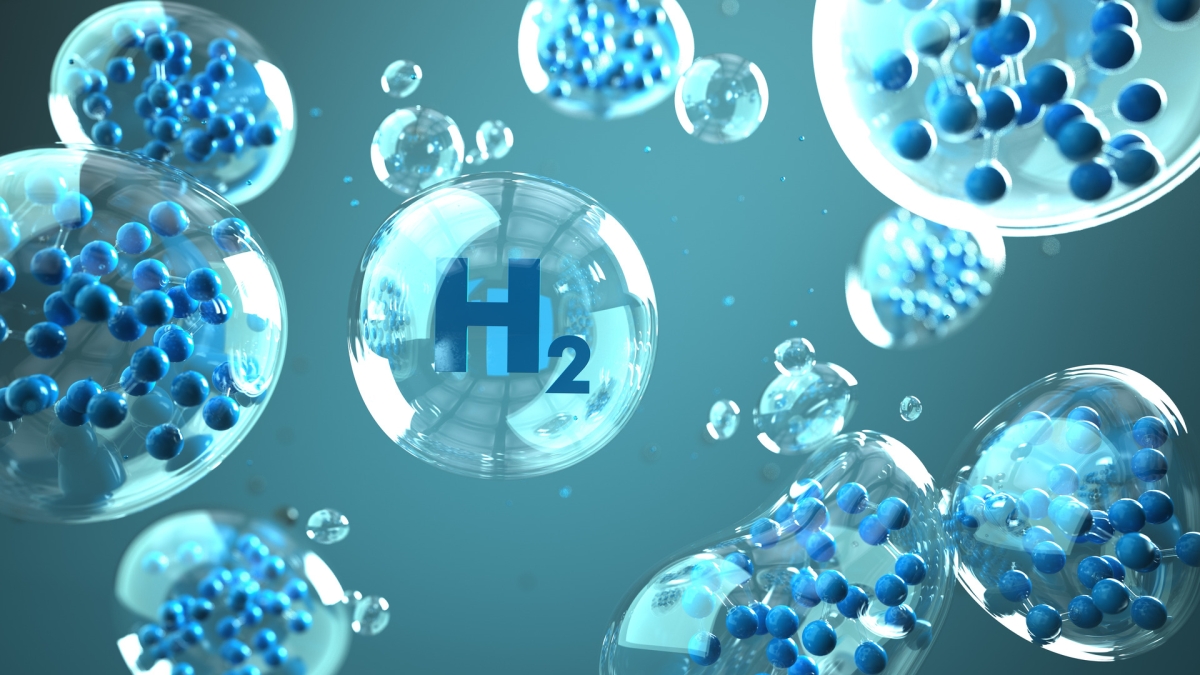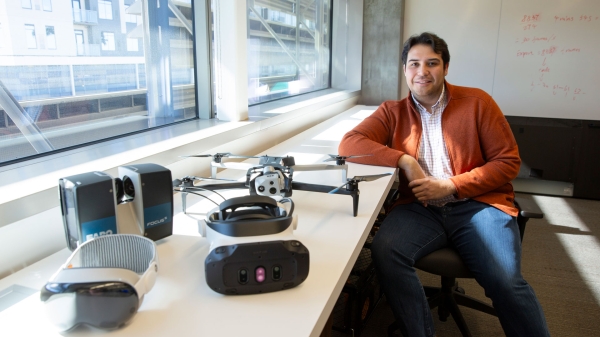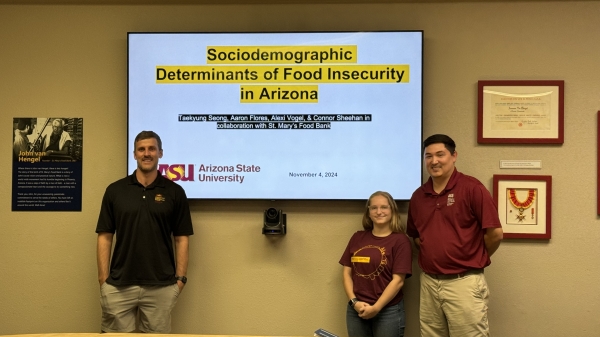Regional network advances to full proposal for developing Southwest hydrogen hub

The Southwest Clean Hydrogen Innovation Network (SHINe) is submitting a full proposal for the development of a desert Southwest clean hydrogen hub. This comes following the network’s submission of a concept paper in November 2022 and encouragement from the U.S. Department of Energy in December 2022.
SHINe is one of 33 applicants encouraged to move forward in the proposal process, chosen from an original 79. The U.S. DOE plans to fund six to 10 regional hubs.
The full proposal will seek federal funding to support crucial clean hydrogen-focused initiatives. DOE funding would facilitate a successful regional hub that would create an ecosystem to economically produce, store, transport and use clean hydrogen, and provide many economic, environmental and community benefits.
SHINe’s coordinated efforts to create and support innovative energy solutions, as well as build a workforce to support the transition to clean energy in the Southwest, are key to achieving energy diversity, flexibility and justice, and a reliable, resilient and sustainable energy ecosystem.
“We’ve brought together a diverse, collaborative and supportive team from industry, government, utilities, universities, local communities, tribes and more. An unprecedented level of collaboration and integration is crucial to ensuring our success. Our broad-based consortium is poised to assemble the resources, talent, projects and infrastructure needed for SHINe to launch a new clean hydrogen industry that will bring economic, environmental and energy justice benefits to the region,” said Ellen Stechel, executive director for the Center for an Arizona Carbon-Neutral Economy. The center is housed within the Julie Ann Wrigley Global Futures Laboratory at Arizona State University.
SHINe includes more than 40 member organizations with expertise and current operations throughout the region, including cities, clean energy companies, gas-producing companies, nonprofit organizations, transit companies, universities, utilities and others. The network has the support of both Nevada and Arizona Governors’ Offices, and U.S. senators.
The network is working to support the DOE’s vision of a regional clean hydrogen hub that provides clean energy and feedstocks for hard-to-abate carbon emissions in the mobility, mining, industrial and electricity sectors while maintaining a reliable and resilient energy system. Also, SHINe aims to have a substantial positive impact across the southwestern region through workforce development, environmental and economic justice efforts and reduction of greenhouse gas emissions.
“Organized labor such as the International Brotherhood of Boilermakers plays a critical role in Arizona’s hydrogen economy and energy transition to lower carbon emissions," said Jacob Evenson, business manager at Boilermakers Local 627. "When customers pay a utility bill, they’re supporting local rural communities, and good-paying jobs for hard-working Arizonans. Community local workforce agreements keep our ratepayer dollars in Arizona’s economy and ensure that we aren’t exporting our dollars to out-of-state entities that don’t abide by the same labor standards, offer the same worker benefits or pay prevailing market wages. Proposed projects with these standards should be the highest priority.”
Nevada and Arizona have a unique energy ecosystem, with geological resources and transportation routes that support favorable conditions for a clean hydrogen market. These include strategic access to critical transportation routes for energy delivery; the geological resources to support storage of large volumes of salt deposits at low cost; and pre-existing infrastructure and pipelines for integration with other renewables.
These attributes provide the region with an opportunity to meet energy demand and export to larger markets via major interstates, rail and pipelines.
“Arizona’s modern transportation network and strategic southwest location, as well as our number-one manufacturing growth rate, demonstrate our ideal positioning to pioneer a clean hydrogen ecosystem,” said Sandra Watson, president and CEO of the Arizona Commerce Authority. “We look forward to continuing to work closely with our partners across the region to advance clean energy solutions.”
Beyond dynamic energy innovation, the cornerstone of SHINe’s clean hydrogen hub strategy focuses on developing responsible energy infrastructure for communities most in need, offering disadvantaged communities opportunities to participate in planning, decision-making and implementation through a robust community benefits plan, ensuring all stakeholders have a voice in the clean energy transition.
The DOE is expected to select awardees this summer. For more information, visit the Southwest Clean Hydrogen Innovation Network.
More Science and technology

Teaching construction realities with virtual environments
Visiting a construction site is a valuable learning opportunity for students who want to one day work in the industry.…
ASU, Mexico partner to build next generation of chipmakers, drive semiconductor innovation
Thousands of college students in Mexico will soon have the opportunity to enroll in Arizona State University’s new, free online…

ASU, St. Mary’s Food Bank partner to tackle food insecurity in Arizona
Arizona State University and St. Mary’s Food Bank (SMFB) have joined forces to create an interactive data dashboard that tracks…